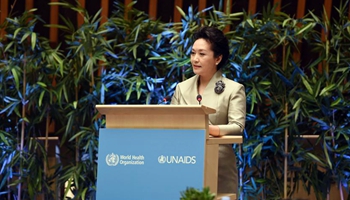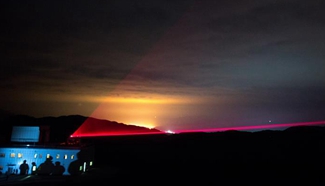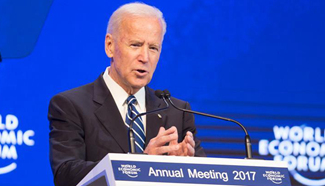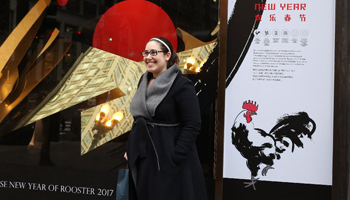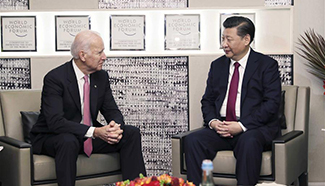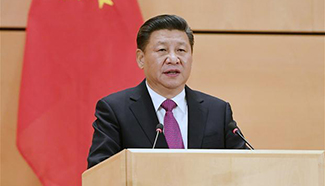DAMASCUS, Jan. 18 (Xinhua) -- Intense battles raged on Wednesday between the Syrian government forces backed by Hezbollah group and an array of rebel groups in the rebel-held water-rich Barada Valley northwest of the capital Damascus, coupled with tens of airstrikes on that area, a monitor group reported.
The battles were concentrated around the Ain Fijeh spring in Barada, said the Syrian Observatory for Human Rights.
The UK-based watchdog group said the Syrian air force targeted the rebel positions in that area with tens of airstrikes, in the latest bid to retake Ain Fijeh, the main spring feeding Damascus with drinking water, which has been scarce in Damascus since the spring were rendered out of service on Dec. 22.
Both conflicting parties exchanged accusations over the water crisis in Damascus, as the government accused the rebels' al-Qaida-linked Nusra Front of cutting the water deliberately to use it as a weapon to push the government to succumb to their demands, while the rebels blamed the government forces' shelling for the damage that had befallen the spring.
The capital's over five million inhabitants have been struggling to secure their needs of water, with the government using its reserve wells to partially feed Damascus with water.
Meanwhile, a military source told Xinhua that the Nusra militants started setting homes on fire in Ain Fijeh area, as a sort of revenge for the military's resolve to take that area.
This comes a week after a truce was reached in that area for the government to enter and fix the spring, in exchange of allowing ultra-radical groups to evacuate the area to the northwestern province of Idlib.
However, the truce was quick to fall on Saturday, as the rebels with Nusra Front fired sniper shots at maintenance workers, who entered the area to fix the spring.
They also shot dead retired Brigadier Ahmad Ghadban, who was tasked by President Bashar al-Assad to supervise the truce and the reconciliation file in Barada.
The truce deal walked on thorny road till it was reached last Wednesday, as the Nusra Front was among the rebels who attempted to repeatedly thwart any understanding with the government.
Part of the deal also included the reconciliation with the rebels who accept the truce with the government, as such rebels will have their records cleared and will be tasked by the government to protect the Barada Valley.
As for those who refuse the truce, the plan was for their departure to Idlib.
The deal also provides for the entry of government workers to fix Ain Fijeh, which sustained damages during the weeks-long battles, during which both warring sides traded barbs over the damage and the water outage.
Maintenance workers withdrew on Saturday after the Nusra militants fired sniper shots at them, after managing to fix part of the spring before their departure.
It's worth mentioning that Barada Valley consists of 10 villages, some of them refused the truce, prompting the army to continue the offensive in the parts that didn't accept the truce, while negotiating with others who were desirous to end the conflict in that region.
Last week, the UN has warned that the water crisis afflicting the Syrian capital may constitute a war crime, without identifying the party responsible for the water crisis.
"In Damascus itself, 5.5 million people have had their water supplies cut or minimized," the UN's humanitarian adviser to Syria, Jan Egeland, said.

